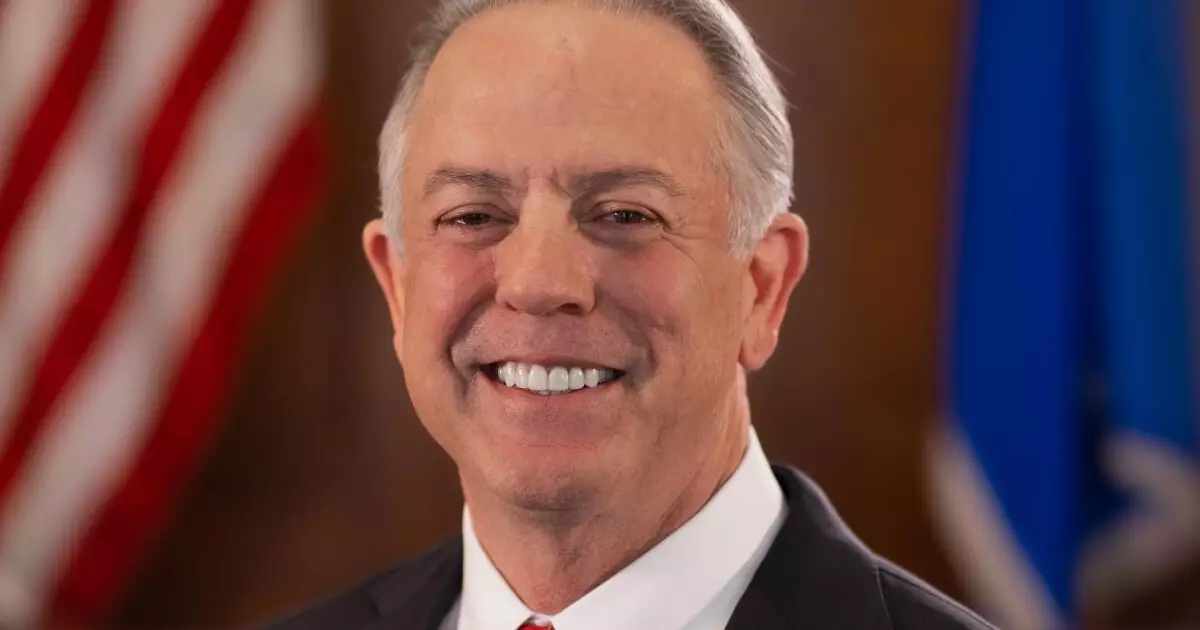As Nevada prepares for its biennial legislative session, the state’s budget has come under fire, igniting debates and concerns among lawmakers and residents alike. Governor Joe Lombardo’s recent decision to replace his budget chief just days before legislators convened on February 3 has raised eyebrows, particularly in light of the contentious budget proposal that threatens to create a significant deficit. With a new face at the helm of the Office of Finance, Nevada finds itself at a critical juncture in addressing fiscal responsibilities while adhering to constitutional mandates for a balanced budget.
Leadership Changes and their Implications
In an unexpected shift, Governor Lombardo appointed Tiffany Greenameyer as the new director of the Office of Finance, succeeding Amy Stephenson. This change not only coincided with the looming legislative session but also underscored the urgency of the state’s fiscal issues. Lombardo confidently praised Greenameyer’s extensive experience in budget management, which spans over two decades in various key positions, including her role at the Nevada Department of Health and Human Services. Such leadership changes often serve as indicators of a governor’s commitment to addressing complex challenges; however, they may also signify internal disturbances within the administration, especially when juxtaposed against the backdrop of a troubling budget proposal.
The crux of the current turmoil lies in Lombardo’s proposed budget, which amounts to $12.7 billion and is projected to generate a $335 million deficit. State Senate Majority Leader Nicole Cannizzaro has been vocal in her criticism, asserting that the proposal defies the constitutional requirement for a balanced budget. As a seasoned lawmaker, Cannizzaro’s concerns reflect a broader scrutiny over fiscal responsibility in a state that has consistently struggled with budgetary imbalances. Her apprehensions highlight not only the challenges that lie ahead in negotiations but also the potential consequences for Nevada’s education system, public services, and overall economic stability.
Democratic Control and Legislative Challenges
The dynamics in Carson City are further complicated by the fact that Democrats maintain control over both legislative chambers, having secured their positions in the November elections. This configuration has established a divided government since Lombardo’s election in 2022, where collaboration between Republican and Democratic leaders will be crucial in navigating budgetary legislation. Given the stakes involved, the process of reconciling differences between party priorities will likely be contentious. The challenge is not just about budget numbers; it’s also about the philosophical disagreements on taxation, spending priorities, and the implications of economic policy on Nevada’s future growth.
Governor Lombardo’s budget plan includes ambitious proposals aimed at improving educational outcomes, enhancing public safety, and addressing housing shortages. Among these, the promise of permanent teacher pay raises stands out as a commendable initiative to bolster the workforce within Nevada’s education system. However, any budget that shows a deficit raises crucial questions: Can these priorities be funded sustainably? What sacrifices will need to be made elsewhere? These inquiries will be pivotal moving forward, especially as the legislative session unfolds and lawmakers grapple with the realities imposed by limited fiscal resources.
As Nevada’s lawmakers prepare to tackle budget negotiations that must be finalized by June 2, the leadership changes, and critical voices surrounding the budget proposal emphasize the complexity of effective governance. With Tiffany Greenameyer now heading the Office of Finance, there is potential for innovation and clarity, yet the challenge remains daunting. Balancing public expectations and constitutional obligations will require not just numbers on a spreadsheet, but a collaborative spirit that transcends partisan divides. Ultimately, Nevada stands at a pivotal moment, as decisions made in the coming weeks will resonate through its communities for years to come.


Leave a Reply